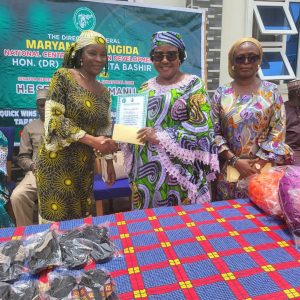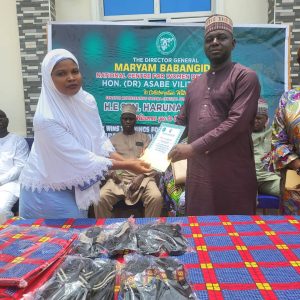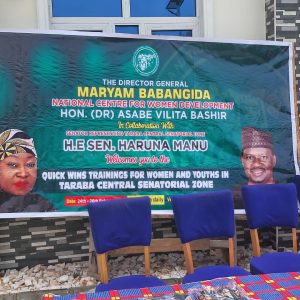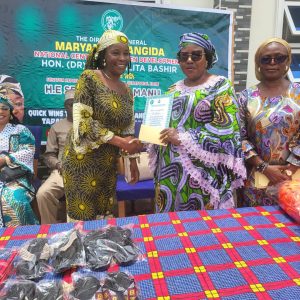News
Address unemployment, extremism to end insecurity – Kukah
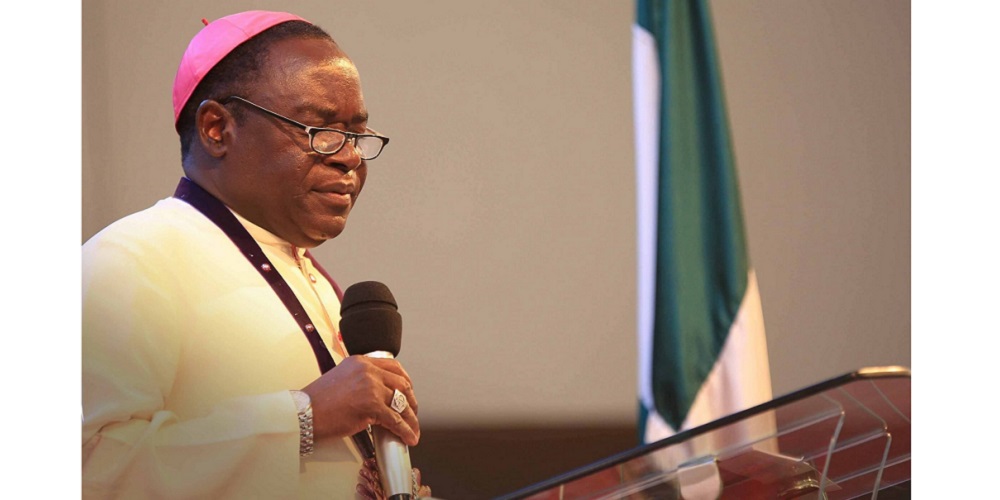
The Bishop of Sokoto Diocese, Matthew Kukah, has said Nigeria’s protracted insecurity cannot be resolved without addressing unemployment and violent religious extremism, which he described as breeding grounds for violence.
Delivering his Christmas message at the Holy Family Cathedral Catholic Church, Sokoto Diocese, Kukah lamented the nation’s lack of measurable progress, which he attributed to a preference for “darkness rather than light.”
“Nigeria’s lack of visible and measurable progress is tied to the fact that we have chosen darkness rather than light,” he said. “Imagine if we let the light shine on our public service, on our politics, on our individual, community, and national life, and on our public institutions. Imagine what Nigeria would be like if we chose light instead of darkness.”
The cleric stressed that meaningful change requires embracing transparency, accountability, and integrity in both public and private life. He urged Nigerians to embody the Christian hymn “They will know we are Christians by our love” and to reject the divisive forces of ethnicity, nepotism, and greed.
“We are still unable to embrace the ideals of our national anthem that says: ‘Though tribe and tongue may differ, in brotherhood we stand.’ Diversity is a gift from God. Let us use it effectively as a tool for national mobilisation and cohesion,” he said.
Kukah identified unemployment and religious extremism as major drivers of insecurity, adding that tackling these issues is essential for stability.
“Insecurity cannot be overcome without addressing unemployment and violent religious extremism, which breed conditions for violence,” he said. He further called for the strict enforcement of laws to prosecute extremists, describing them as “criminals and murderers.”
The Bishop commended the passage of the Not Too Young to Run Bill and the enactment of the Student Loan Act 2024, noting their potential to expand opportunities for young Nigerians.
“It is significant that the act does not limit access to university students alone. We hope this project will be free of bureaucratic bottlenecks and favouritism, ensuring that poverty does not exclude anyone from receiving a good education,” Kukah stated.
He urged the youth to seize these opportunities but noted ongoing barriers such as high political participation costs and weak internal democracy.
Speaking on the recent tragedies in Okija, Ibadan, and Abuja, where stampedes during food distributions led to loss of lives, Kukah described these incidents as “metaphors for the desperation Nigerians face daily.”
“These tragedies were avoidable. The government must collaborate more effectively with institutions that promote the common good to prevent such loss of life,” he said.
Kukah praised the Catholic Church’s efforts to support vulnerable communities through organisations like St. Vincent de Paul and called on the government to do more in safeguarding citizens’ dignity.
Bishop Kukah also encouraged Christians to stay committed to their faith and moral responsibilities, regardless of the nation’s systemic failures.
“We are the light of the world, a city on a hill that cannot be hidden. We must not allow the weaknesses and failures of the Nigerian state to become an excuse for doing wrong,” he said.
He urged Christians to prioritise divine law over human systems, noting, “The Constitution has its flaws, but the Word of God is a divine command, inerrant, and written in the hearts of good Christians.”
As the nation continues to grapple with insecurity, poverty, and corruption, Kukah called on all Nigerians to choose the path of unity, love, and accountability for a brighter future.
“As we celebrate Christmas, let us open our hearts and commit to living the ideals Jesus taught us. May this season bring joy, and the new year bring blessings,” Kukah said.
News
Pope Francis finally laid to rest

Pope Francis was buried inside his favourite Rome church after a funeral mass in St Peter’s Square, the Vatican said on Saturday.
Francis who died on Monday aged 88, was laid to rest during a 30-minute ceremony which started at 1:00 pm (1100 GMT) at the Santa Maria Maggiore basilica in the Italian capital.
Footage shared by the Holy See showed cardinals marking his wooden and zinc coffin with red wax seals.
Cardinal Kevin Farrell, who as camerlengo is running the Vatican’s day-to-day affairs until a new pope is elected, sprinkled it with holy water after it was lowered into a tomb set inside an alcove.
A reproduction of the pectoral cross worn by Francis during his lifetime hung above it.
Francis had asked that the tomb, located near the altar of Saint Francis, be simple and unadorned, reflecting the humble spirit of his papacy.
The tombstone bears only the inscription “Franciscus” — the pope’s name in Latin.
Its marble is sourced from Liguria, the northwestern Italian region once home to the Argentine pontiff’s Italian ancestors.
Francis, born Jorge Bergoglio, had specified in his will the exact spot he wanted to be buried, in the side nave of the beloved fifth-century AD church.
The pontiff was devoted to the worship of the Virgin Mary and made a point of praying in Santa Maria Maggiore before leaving on trips abroad and upon his return to Rome.
He declared his desire to be entombed there in 2023.
Located in the heart of Rome, the basilica already holds the tombs of seven popes.
But the last one to be buried there was Clement IX in 1669. More recently, popes have usually been buried in St Peter’s Basilica.
One of four papal basilicas in Rome, Santa Maria Maggiore also holds the remains of several other renowned figures, such as the architect and sculptor Gian Lorenzo Bernini, who designed St Peter’s Square and its surrounding columns.
News
Just in: Gunmen invade pro-Wike group in Bayelsa
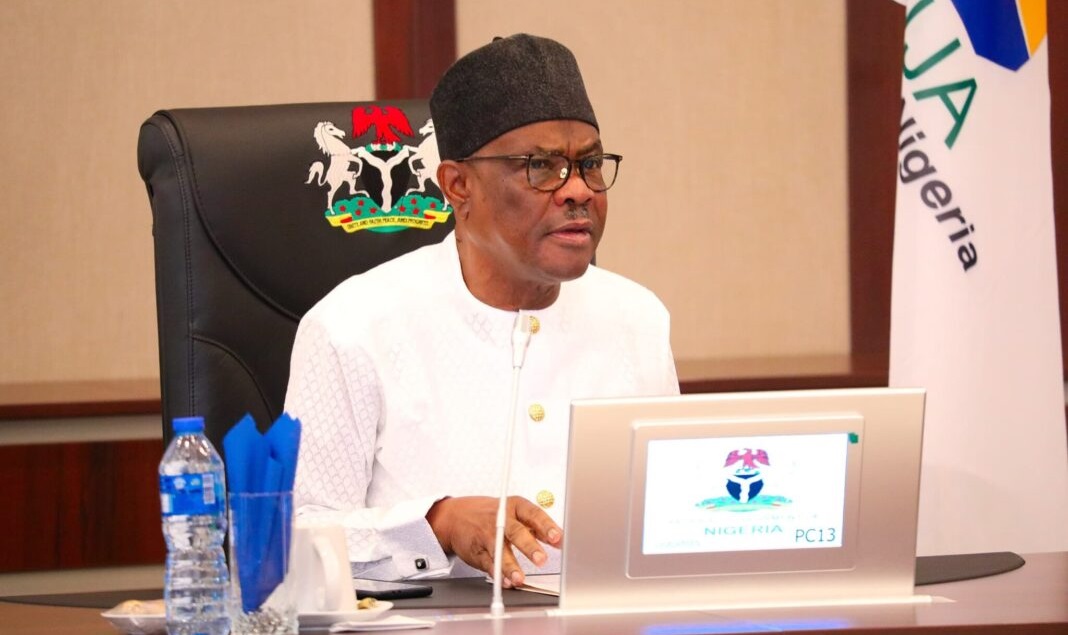
Gunmen suspected to be hired political thugs disrupted a rally organised in support of Minister of the Federal Capital Territory, Nyesom Wike, on Saturday in Yenagoa, Bayelsa State.
The event, which also marked the inauguration of the NEW Associates group, was meant to thank President Bola Tinubu for appointing sons and daughters of Bayelsa into positions in his administration, while also showing support for Wike, who serves as the group’s grand patron.
Originally scheduled for April 12, the rally had been postponed to April 26 after another group, supporters of Governor Douye Diri, booked the same venue and date for their own rally.
Although both groups eventually rescheduled, tensions remained high.
Supporters of NEW Associates had gathered early at the Church of God Mission Camp, ready for the event, when armed men suddenly emerged from nearby creeks and bushes, firing gunshots into the air.
The crowd quickly scattered in fear, while security forces including the Nigeria Police, the Nigeria Security and Civil Defence Corps (NSCDC), and the Department of State Services (DSS) responded by pushing back the attackers and searching the surrounding area to prevent further violence.
After the incident, Comrade Ebilade Ekerefe, Secretary of NEW Associates and former spokesperson of the Ijaw Youths Council, accused the state government of trying to disrupt their peaceful gathering.
He insisted the rally would go on, stating that their intention was simply to express gratitude to the President and show solidarity, and questioned why anyone would feel threatened by such an event.
Similarly, Dr Pabara Igwele, the immediate past Commissioner of Health in Bayelsa, described the rally as peaceful and blamed the disruption on political motives.
He also vowed that the rally would continue despite the attack.
After the initial chaos, supporters regrouped to carry on with the event.
News
Senator Manu Haruna Launches Quick Wins Training for Women and Youths in Taraba Central Senatorial District+Photos
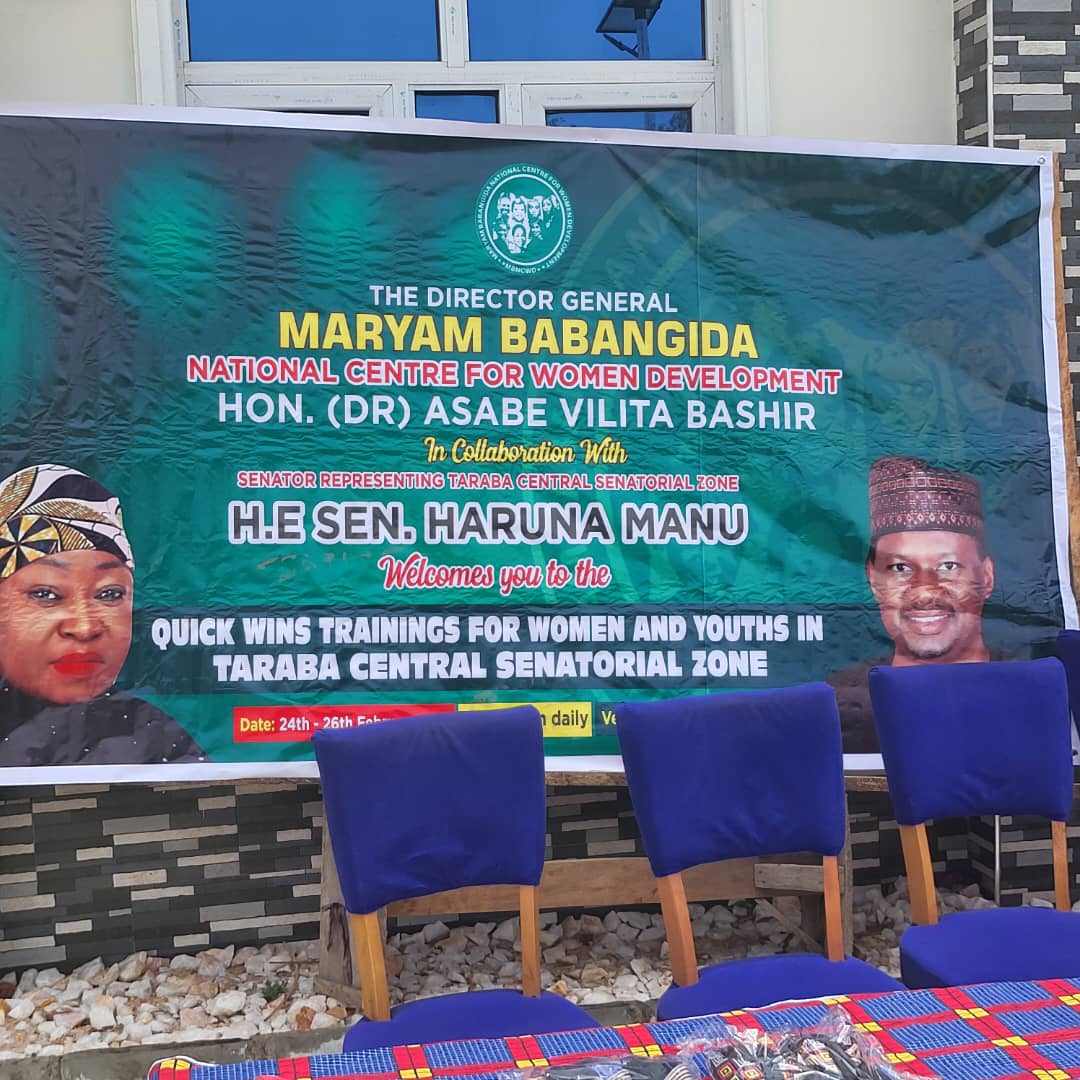
Senator Manu Haruna of the Taraba Central Senatorial District on Saturday concluded a three-day Quick Wins Training program dedicated to empowering women and youths in the District .
The event took place in Jalingo, the capital city of Taraba State, in collaboration with the Maryam Babangida National Centre for Women Development.
The training initiative is aimed to equip participants with practical skills and knowledge that can foster economic independence and stimulate community development. This program is a reflection of Senator Haruna’s commitment to improving the socio-economic status of underrepresented groups within his constituency.
The event was attended by prominent leaders, including Hon. Veronica Alhassan, Member of the House of Assembly for Bali I Constituency, and Hon. Alhassan Hamman, who presented certificates to participants on behalf of Senator Manu Haruna.
The involvement of critical stakeholders underscored the importance of collaboration between government officials and community leaders in driving sustained progress in Taraba Central.
Among the distinguished attendees were Hon. Ubale Gambo, Hon. Bala Baba, Alhaji Muhammad Nagaggo, Alhaji Raubilu Umar, among others, all of whom are dedicated to fostering development within the region.
Senator Manu Haruna expressed his gratitude to the National Centre for Women Development and all partners involved in the initiative.
He stressed the transformative potential of empowering women and youths, noting the necessity for continued support and resources to ensure sustainable growth in Taraba State.
This Quick Wins Training is poised to have a long-lasting impact on participants, equipping them with essential skills to make valuable contributions to their communities and the broader economy of Taraba State. By investing in the future of these underprivileged groups, the program seeks to inspire change and promote self-sufficiency among the local populace.
-
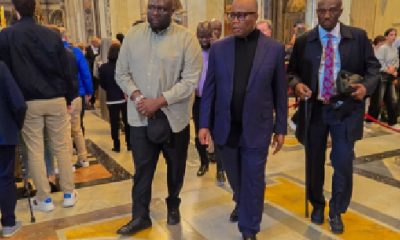
 News20 hours ago
News20 hours agoAkpabio arrives Vatican ahead Pope’s funeral
-
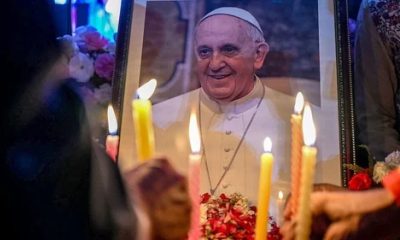
 News14 hours ago
News14 hours agoList of World Leaders that are present in the final funeral of Pope Francis
-

 News9 hours ago
News9 hours agoJust in: Gunmen invade pro-Wike group in Bayelsa
-

 News18 hours ago
News18 hours agoDefections: Teejay Yusuf traces genesis of PDP palaver, key issues affecting Nigeria’s largest opposition party
-
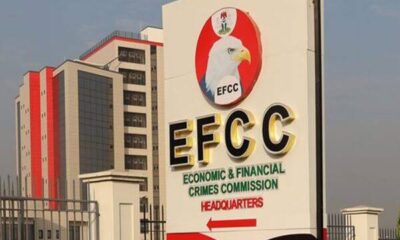
 News19 hours ago
News19 hours agoCBEX: EFCC declares four persons wanted over crypto fraud + photos
-

 News14 hours ago
News14 hours ago2Face estranged wife, Annie Macauley breaks silence after he married Natasha
-

 News19 hours ago
News19 hours agoScandal! Osun monarch, pastor admit to COVID-19 fraud in US
-
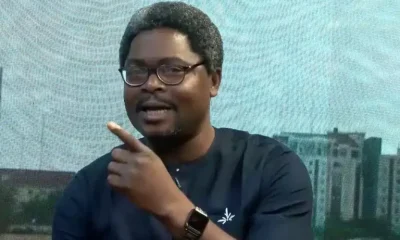
 Politics17 hours ago
Politics17 hours agoUgochinyere remains Nigeria’s number one Hushpuppi of politics-Olayinka carpets Imo Rep














